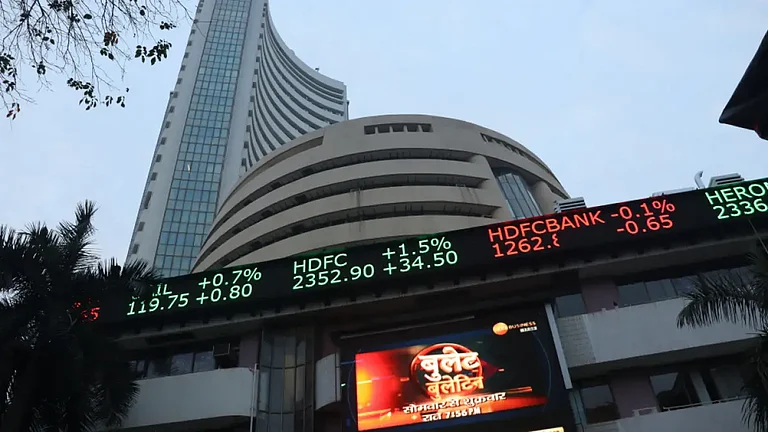
SAT admitted Jane Street’s appeal against Sebi’s July order, directing the regulator to reply within three weeks.
Jane Street claims Sebi withheld critical documents, while Sebi argues it has already provided sufficient data.
Case outcome could influence disclosure norms, regulatory transparency, and algo trading practices in India.
The Securities Appellate Tribunal (SAT) has admitted an appeal by US-based high-frequency trading (HFT) firm Jane Street in a case against India’s market regulator, the Securities and Exchange Board of India (Sebi) over allegations of index manipulation. The standoff between the two parties is closely tracked by market participants as it stands to shape the future of algorithmic trading in India.
On September 9. the three-member SAT bench admitted Jane Street’s challenge to Sebi’s interim order and directed the regulator to file its reply within three weeks. Jane Street will then have the opportunity to submit a rejoinder, within the next three weeks, with the tribunal fixing November 18 as the next hearing date.
The dispute began with Sebi’s interim order of July 3, which accused Jane Street and its affiliates of orchestrating a complex two-legged manipulation strategy in the Bank Nifty index. According to the regulator, the firm allegedly built up large positions in Bank Nifty constituents, both in cash and futures, to artificially inflate the index, before reversing those trades while simultaneously holding short positions in index options.
Sebi claimed that these manoeuvres allowed the firm to pocket illicit gains of ₹4,844 crore. The order barred Jane Street from trading in Indian markets and demanded that the firm deposit the alleged profits. Jane Street complied with the deposit requirement, after which Sebi lifted the trading ban, though the cloud of allegations remained.
Jane Street, for its part, insists that its trades were routine index arbitrage strategies aimed at improving price efficiency, not market manipulation.
At the heart of the appeal lies a tussle over transparency and regulatory disclosure. Jane Street has accused Sebi of withholding critical documents, including internal reports, meeting minutes, and even details of the complaint filed by a UAE-based hedge fund manager that allegedly triggered Sebi’s probe.
Senior counsel Darius Khambata, representing Jane Street, argued before SAT that both the National Stock Exchange (NSE) and Sebi’s own Integrated Surveillance Department had previously found no evidence of wrongdoing in similar reviews. Sebi’s 25-month review period, he pointed out, overlapped with the NSE’s 16-month probe yet reached the opposite conclusion, a discrepancy that, he argued, cannot be reconciled without access to the regulator’s full investigative material.
Jane Street has sought around 61 documents from Sebi, including trade logs that it claims were shared in a masked format. Khambata stressed that without full disclosure, the firm cannot mount an adequate defence.
Sebi, however, has pushed back on the claims. Appearing before SAT, senior counsel Gaurav Joshi maintained that the regulator had already supplied Jane Street with 10 GB of data and that not every single internal record could be handed over. Joshi accused the trading firm of engaging in what he described as a ‘phishing inquiry,’ demanding irrelevant internal documents while refusing to fully disclose its own trading strategies.
He added that the investigation was at a ‘critical stage’ and that Sebi was still in the process of passing a complete order. The regulator has so far avoided issuing a formal show-cause notice, choosing instead to proceed with its inquiry under the July interim order.
For Jane Street, one of the world’s most prominent HFT firms, the case is as much about clearing its name as it is about establishing fair standards for disclosure. For Sebi, the matter represents a test of its ability to regulate increasingly complex high frequency trading practices without exposing itself to charges of opacity or overreach.
Observers note that the case will also be closely watched by foreign investors, many of whom have long voiced concerns about the predictability and transparency of India’s regulatory framework. If SAT rules in favour of greater disclosure, it could set a precedent forcing Sebi to rethink how it handles interim orders in market manipulation cases.
For now, SAT has given Sebi three weeks to file its response explaining why it has withheld the documents requested by Jane Street. The tribunal’s next hearing will provide a clearer sense of how far the regulator is willing to go in defending its investigative secrecy, and whether the global trading firm can persuade the appellate body that it has been unfairly targeted.



































